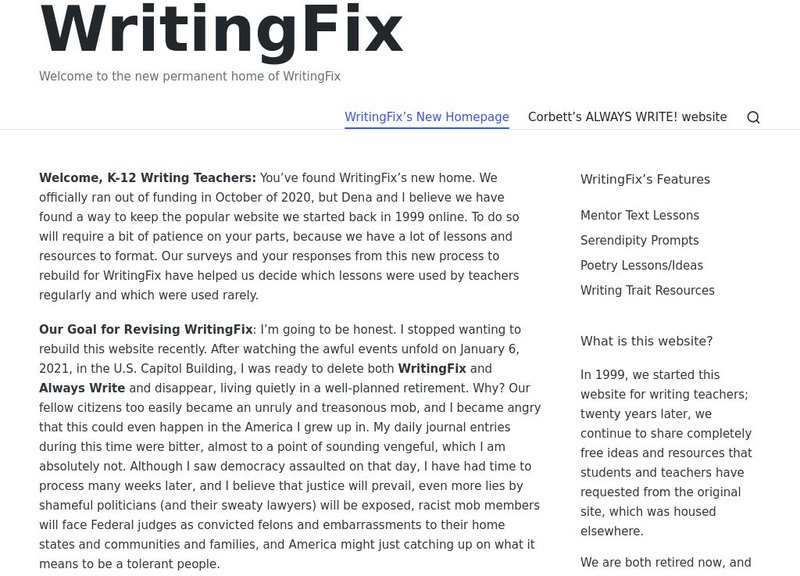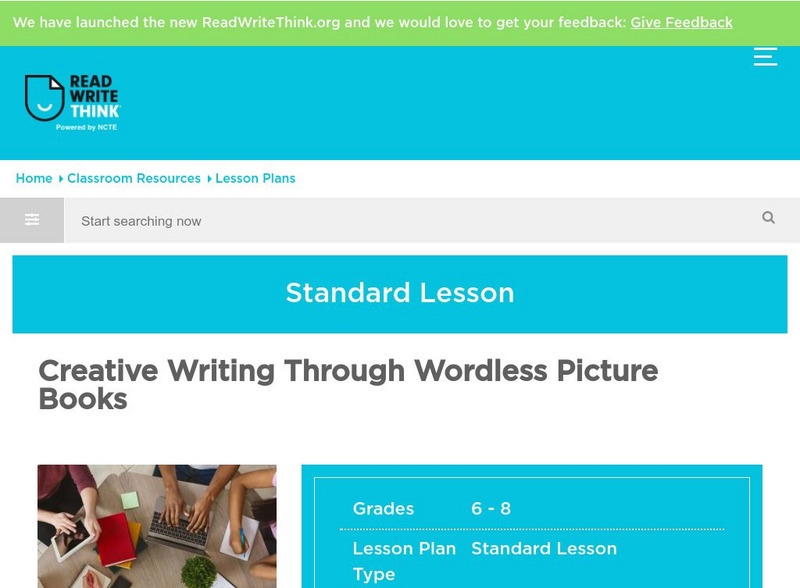ReadWriteThink
Read Write Think: Sequence of Events Chart
A printable graphic organizer to help students sequence events and recognize cause and effect relationships within a story. Directions on how to use this graphic organizer as well as lists of teaching ideas and related resources are also...
Daily Teaching Tools
Daily Teaching Tools: Flow Charts for Sequencing
This Daily Teaching Tools resource provides a graphic organizer. Students will be able to write a sequence of events more efficiently by using this tool.
ReadWriteThink
Read Write Think: Sequencing a Strategy to Succeed at Reading Comprehension
Contains plans for lessons that use the story of Paul Bunyan to teach about sequencing and order of events. In addition to objectives and standards, this instructional plan contains links to sites used in the lessons as well as...
ReadWriteThink
Read Write Think: Buddies Create Power Point Stories
Contains plans for five lessons that ask students to create PowerPoint presentations about shared experiences like field trips or other activities. Students take pictures of what happen, and then explain the sequence of events in words...
ReadWriteThink
Read Write Think: Draw a Story: Stepping From Pictures to Writing
Help young young scholars move from drawing pictures into writing simple stories. Good plan for having students put pictures in sequential order and teaching them about sequential order.
Beacon Learning Center
Beacon Learning Center: Sequence of Events
Build sequencing skills by looking at transition words like first, next, then, and finally. Read four short paragraphs and use the transition clues to put the events in the correct order. Then use these words while typing an original...
SMART Technologies
Smart: Reviewing Sequence of Events
Students will identify time-order words in order to comprehend passages, place events in sequential order on a time line, and use a flow chart to organize their thoughts for writing in this interactive SMART whiteboard activity.
ReadWriteThink
Read Write Think: Exploring Before, During, After Sequencing
From Read-Write-Think, here is a three-day lesson plan in which a class collaborates to produce a book, focusing on carving a jack-o-lantern. The emphasis is on teaching the skill of sequencing events.
Better Lesson
Better Lesson: Tie It Up With Transition Words to Write a Story!
Read, write, and present a digital narrative with transition words to help us put the events in order! After modeling the lesson, groups of learners will write narratives to recount a short sequence of events, they will include details...
Houghton Mifflin Harcourt
Harcourt: School Publishers: Test Tutor: Sequence
Students will increase their reading comprehension skills and understanding of story sequence by reading a passage of text and then answering questions about the order of events.
PBS
Pbs Teachers: Story Writing With Arthur
This series of 12 downloadable activities teach students some basics of story writing, using books or videos from the PBS "Arthur" series as a springboard. Activities include creating story maps, asking questions about characters and...
SMART Technologies
Smart: Sequence Putting Things in Order
Students will practice putting things in order, learn about sequence words, and use sequence words to produce a writing assignment within this interactive SMART whiteboard lesson.
Houghton Mifflin Harcourt
Holt, Rinehart and Winston: Writing a Personal Narrative [Pdf]
A middle school student model of personal narrative writing. Includes a good writing style, examples, and very good notes and annotations as helpful aids for writing success. Points out the introduction, sequence of events and how they...
Better Lesson
Better Lesson: W.4.4: Produce Clear Writing to Task, Purpose, Audience
Links to 89 lessons and activities that build student skills in standard W.4.4: Use a variety of transitional words and phrases to manage the sequence of events.
Better Lesson
Better Lesson: Yum Yum Applesauce
Kindergarteners write for many purposes. In this lesson, kindergarteners learn that it is important to include recipe steps so the applesauce comes out just right!
ReadWriteThink
Read Write Think: Integrating Language Arts: If You Give a Mouse a Cookie
This lesson integrates reading, writing, listening, and speaking to boost students' comprehension skills. Students explore Laura Joffe Numeroff 's If You Give a Mouse a Cookie using a variety of techniques, beginning with a picture walk...
Writing Fix
Writing Fix: Writing a Roundabout Story
In this lesson plan, If You Give a Mouse a Cookie, by Laura Numeroff, is used as a mentor text to highlight the trait of organization. The content focus of the lesson is to highlight that authors' story structures can be imitated. Story...
Florida Center for Reading Research
Florida Center for Reading Research: Narrative Text Structure: Sequence a Story [Pdf]
A lesson plan in which students read a narrative text and write the main events of the story on sentence strips. Materials are included.
Writing Fix
Writing Fix:"oh, That's Good!" "No, That's Bad!"
How can something that is good, be bad and something that is bad, be good? Inspired by the pattern and concept in Margery Cuyler's picture book That's Good! That's Bad!, students will brainstorm a sequence of related events as the story...
Georgia Department of Education
Ga Virtual Learning: Popular Culture: Expository Writing
This lesson focuses on expository writing including definitions, terms, sample expository essays, sequencing events into chonological order, and links to information about how to write expository essays.
ReadWriteThink
Read Write Think: Creative Writing Through Wordless Picture Books
Need help planning ways to creatively teach your students chronological order? Here's a great place to start. While the site is specifically geared toward the middle school student, it is a teaching idea which could easily be adapted for...
Other
Write Design: Graphic Organizers: Sequence
Lists and describes several types of graphic organizers which fall under the "sequence" mold, including a ranking table, continuum scale, cycle, bridging snapshots, series of events chain, and a problem/solution outline.
Better Lesson
Better Lesson: W.3.3: Write Narratives to Develop Real or Imagined Experiences
Links to 47 lessons and activities that build student skills in standard W.3.3: Write Narratives to develop real or imagined experiences or events using effective technique, descriptive details, and clear event sequences.
South Carolina Educational Television
Know It All: Sequencing Using Comics
Fifth graders will use comics in order to discover the importance of sequence while writing narratives.


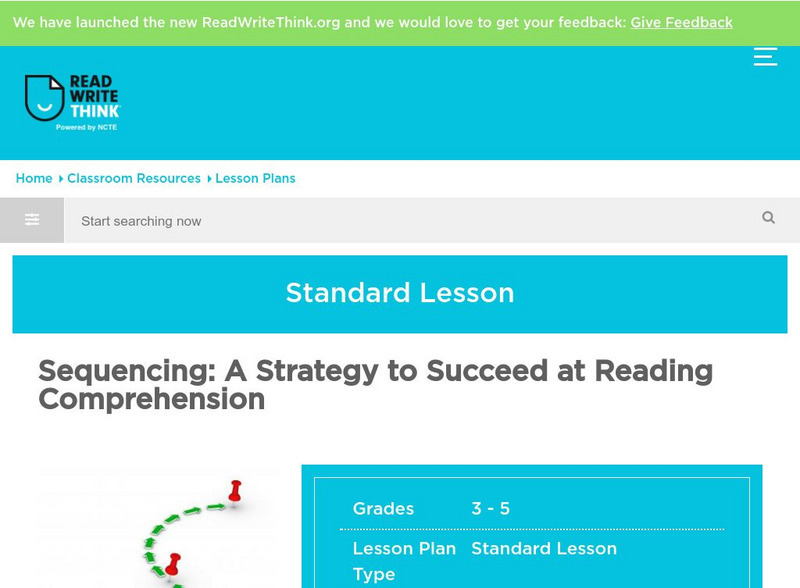


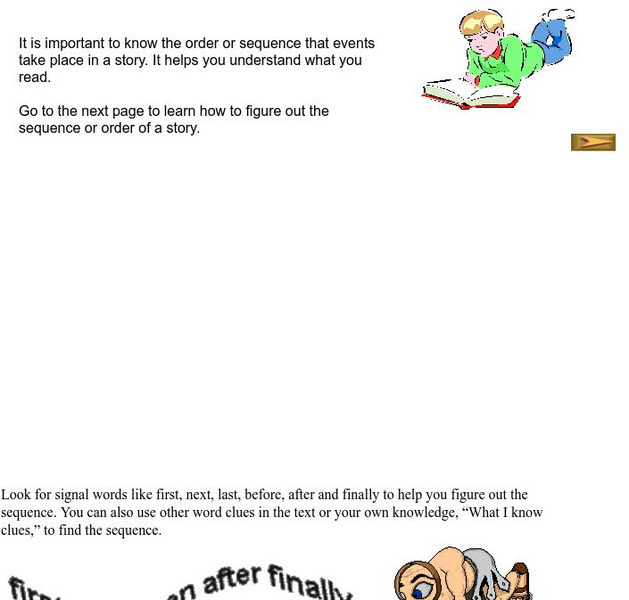





![Holt, Rinehart and Winston: Writing a Personal Narrative [Pdf] Unknown Type Holt, Rinehart and Winston: Writing a Personal Narrative [Pdf] Unknown Type](http://content.lessonplanet.com/resources/thumbnails/410070/large/bwluav9tywdpy2symdiwmduymc0xmtq2ny01njrxbhiuanbn.jpg?1589985236)

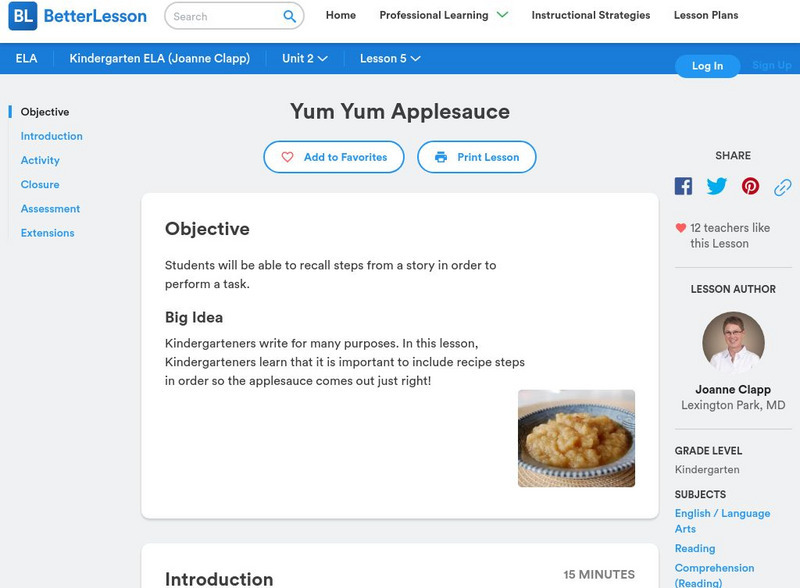
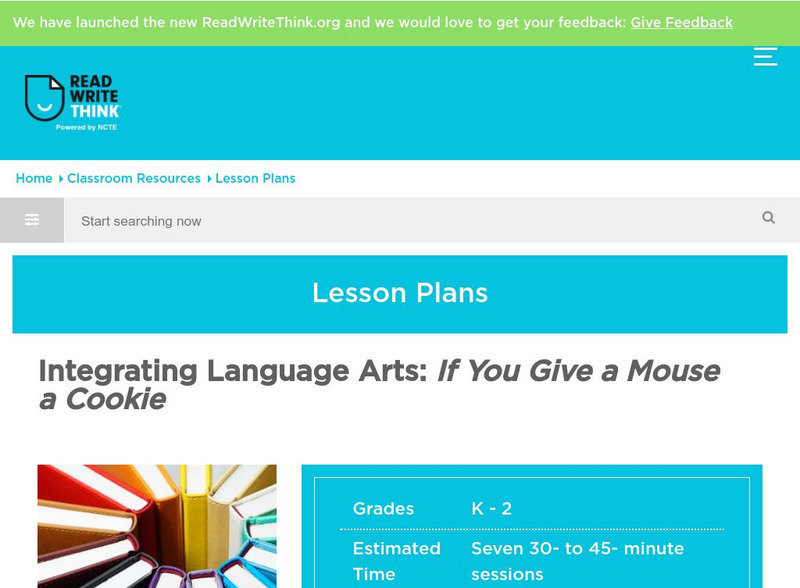
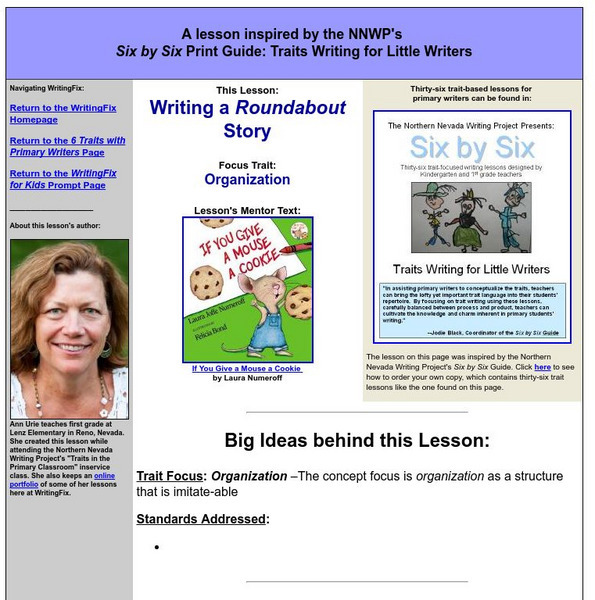
![Florida Center for Reading Research: Narrative Text Structure: Sequence a Story [Pdf] Lesson Plan Florida Center for Reading Research: Narrative Text Structure: Sequence a Story [Pdf] Lesson Plan](https://content.lessonplanet.com/knovation/original/509124-8f3f3c440d6b6d200b605de1c46e8d0a.jpg?1661786936)
